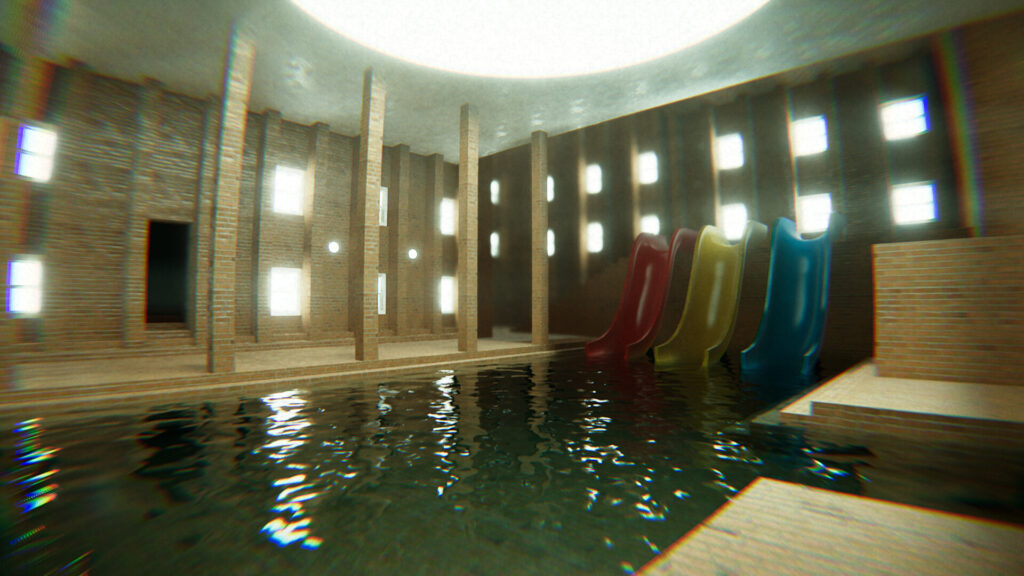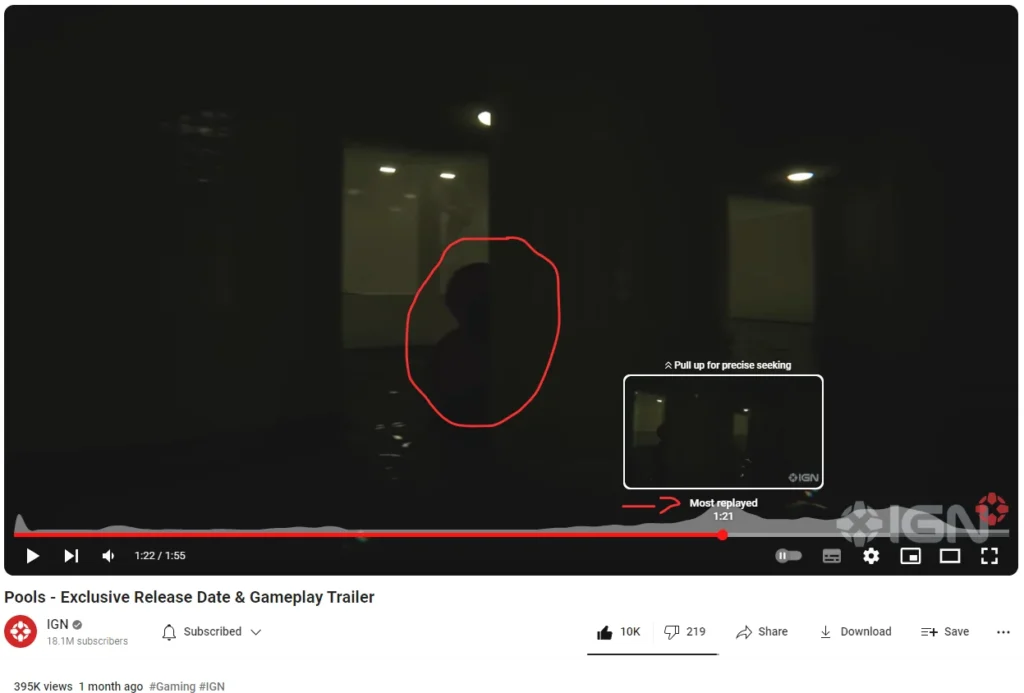Author: Michal Napora of 32-33
Should you take your demo down before the game comes out? Usually Steam marketeers would advise you to do so, but sometimes it’s smart not to listen to the experts and do the opposite.
A couple of months ago I worked on the liminal spaces psychological horror POOLS from developer Tensori. The game came out at the end of April 2024, and since its release, it gathered a healthy 2.100 Steam User Reviews with an even healthier 94% User rating. Pretty impressive.
Around the release, POOLS became the horror game of the moment, with millions of views on TikTok (IGNs TikTok got us just under 2 million views alone), YouTube, and great user reviews. So what was the secret to its success? Well, it wasn’t so much as one magical ingredient, but rather a sauce of successful initiatives.
Organising IGN exclusives helped. Same with influencer coverage. The right release date was a key move too. It came out the same day as Manor Lords, meaning nearly every influencer was ‘taken’. Except for the horror ones (and the horror fanatical players), they needed something new to play – enter POOLS. And of course, it helps that the game itself is pretty damn special and unique. However, there was one thing that we did a bit differently in this campaign, and that was how we handled the demo.
Creating marketing chaos. Kinda.
The old adage among the Steam marketers (including myself) is to take down your demo before your game comes out. After all, why let them sample your game and satisfy their itch while they can buy it and hopefully not return it before the 2-hour return mark lapses. And I was ready to apply this theory to action on POOLS too, until the devs made a good point.

You see, POOLS is not a usual game. Gameplay-wise, it’s very minimal. There is no story per se, no monsters, no NPCs. The thing that scares you is your own psyche. As you might tell, it’s not everyone’s cup of tea. Having this demo up became a filter for those who would complain. Instead of buying, refunding, and leaving a negative review, they got a taste of the game and were able to decide if it was for them or not, without impacting the review score of the game itself.
Negative Nancies
And for those that tried it, well, they most likely liked it and it reflected in the user scores too. We were on the New and Trending chart for nearly a week, and throughout this time we hovered around the 95% Overwhelmingly Positive rating. And when you see a new game with over a thousand reviews with an Overwhelmingly Positive rating, you take notice – be it a player, a content creator, or a journalist.

So, if you are working on a non-traditional game, having a demo up after release could be a good way to filter out those negative nancies. After all, digital clout/user review rating can at times make or break your game. Should you do it? It’s up to you to decide. But for me, I will definitely think twice about taking the demo down. As they say, not everything in marketing is 100% applicable to every game. To be honest, no one actually says this, but you know, I was kinda hoping to have a more impactful ending there.
One more bonus tip from POOLS!
I worked on a few horror games before (The Medium, The Sinking City, Bramble: The Mountain King, Dying Light), so we made sure that in our first exclusive IGN trailer, there was a scene or two in there that resonated with this crowd. Here’s one scene that worked well.

The whole trailer shows no enemies/monsters, but at the 1:22 mark, you can see a silhouette pop up from one of the pillars. It looks like someone is watching you/hiding, but in fact, it’s a giant rubber ducky floating – you will see that later on when you play the game. We wanted to leave that unrevealed so that audiences/viewers will keep guessing that that is (“They said no enemies/monsters, but wtf is that?!?!?!”). And it seemed to have worked. If you watch that video and hover over the timeline, that moment is the most replayed part of the trailer. It was nice seeing that people resonated with that.
Author Michal Napora is founder of 32-33, a marketing agency specialised in video game marketing. This article is part of a series of marketing related blog posts on the 32-33 website. Consider subscribing to Michal’s newsletter here or check out his twitter here. 

